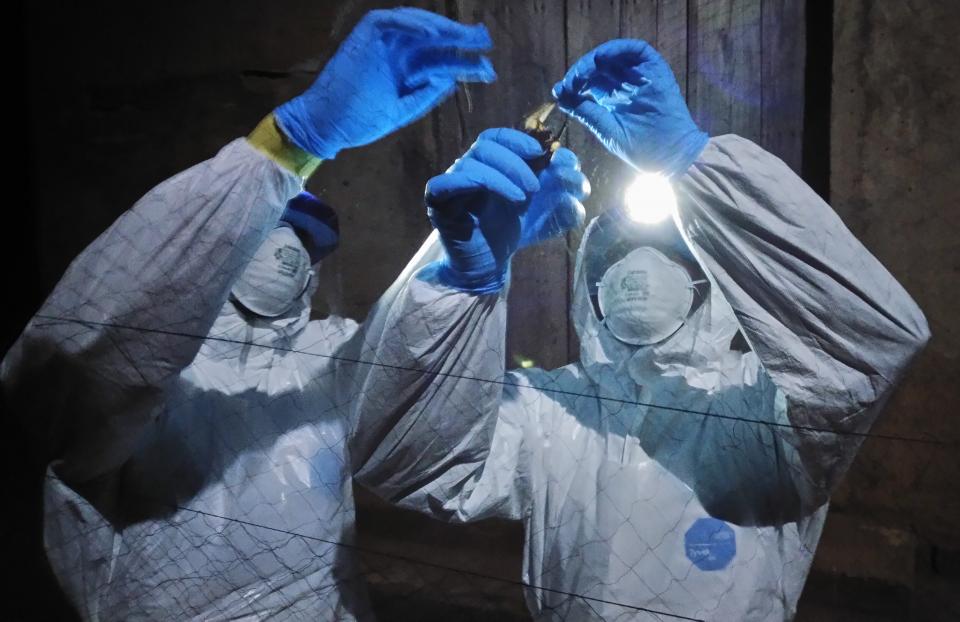“Scientists have become the bearers of the torch of discovery in our quest for knowledge”. –Stephen Hawking
While sitting in a laboratory meeting as a Ph.D. student, my advisor brought us an image of a virus particle that all of the graduate students recognized as a retrovirus, specifically the genus of retroviruses called “lentiviruses.” We knew this because these viruses plagued veterinary medicine for decades, causing a variety of chronic animal diseases, well known to veterinarians. What surprised us and the world at the time, was that the virus was isolated from patients suffering from a new human epidemic eventually known as AIDS. The world for me changed almost overnight and I dedicated my career to studying these deadly viruses of animals and people.

PREDICT’s Ebola Host Project team safely and humanely collect samples from bats in the field. The team is active in Sierra Leone, Guinea, and Liberia, where teams are sampling wildlife and domestic animals to learn more about potential host species for ebolaviruses. (Jaber Belkhiria/UC Davis)
This past week, one of our research teams lead by Dr. Tracey Goldstein described the discovery of a new strain of Ebola virus from bats in Sierra Leone. As with most scientific investigations, the new virus was discovered by a collaborative team effort that included our One Health Institute, well as colleagues at Columbia University. As I spoke to Dr. Goldstein about the discovery, she became expressive, excited, but restrained at the same time, trying to contain her sense of discovery with her analytical side as a professor whose job it is to identify the origin of viruses like Ebola. Her motivation was in context to the vivid reality that the most recent Ebola outbreak in 2013-2016 killed more than 11,000 people in West Africa. While this new virus may not be the origin of that outbreak, her team’s work provides more evidence that bats are a likely host for these deadly human viruses and opens new questions in their goal to prevent global pandemics.
Like anyone who discovers new knowledge to help enlighten our world, I know the feelings of Dr. Goldstein and those involved in this significant new finding. These moments are rare in the life of a scientist, but are never forgotten. They are etched into the personal stories of our researchers forming the foundation of how they are defined. She is one of our many faculty members who bring enlightenment through their discoveries. They possess an innate desire to help humankind through their work, and in doing so, help all of us better understand our world.
